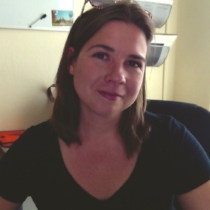Project Awarded: $15,000
Neuroscientists investigating human cognition with neuroimaging technology often use ‘representation talk’ to describe their findings. This language is often ambiguous and its empirical and theoretical significance are thus unclear. Sometimes representations are treated as phenomena that are the targets of investigation and intervention, and at other times the concept is used as a stand-in for claims about information processing. To address the consequences of this ambiguity for neuroimaging research we are preparing an interdisciplinary workshop that will critically evaluate the use of neuroimaging technologies as a window into the representational content of neural activity. This workshop is motivated by philosophical work that has argued (e.g., Sullivan 2010) and demonstrated (e.g., Orlandi 2014), that it can be empirically fruitful to treat representations as phenomena to be explained.
Our workshop aims to address three central questions: What is the significance of attributing to a pattern of brain activity the status of ‘representation’? What evidence is required to make such an attribution? Can neuroimaging technologies provide that evidence? We will address the questions by bringing together philosophers whose work directly engages with the concept of representation, and neuroscientists who are concerned with empirical and technical issues that may impede the search for actual representations n the brain. To focus the discussion on practical issues and pressing theoretical challenges, the workshop will be organized around three cognitive domains: action, memory, and perception.
The goal of the workshop is to identify empirical criteria that can identify representational states and their content within the domains of memory, perception and action. Furthermore, by bringing together an interdisciplinary set of researchers, some of whom have collaborated on similar ideas before, our workshop will provide continuing support for the burgeoning interdisciplinary community devoted to addressing theoretical issues in neuroscience through collaboration and conversation between philosophers and neuroscientists. To ensure that the insights obtained from this meeting advance neuroscientific research beyond the practices of those who participate, the workshop will be recorded and the recordings made available online, and the collection of contributions to the workshop will be formed into an edited volume which will be published as a special issue in an open access journal.
Jessey Wright, PhD. Postdoctoral researcher in Psychology, Stanford University
Robyn Waller, PhD. Assistant Professor of Philosophy, Iona University
Sarah Robins, PhD. Associate Professor of Philosophy, University of Kansas
Petra Vetter, PhD. Professor, Department of Psychology, Royal Holloway



